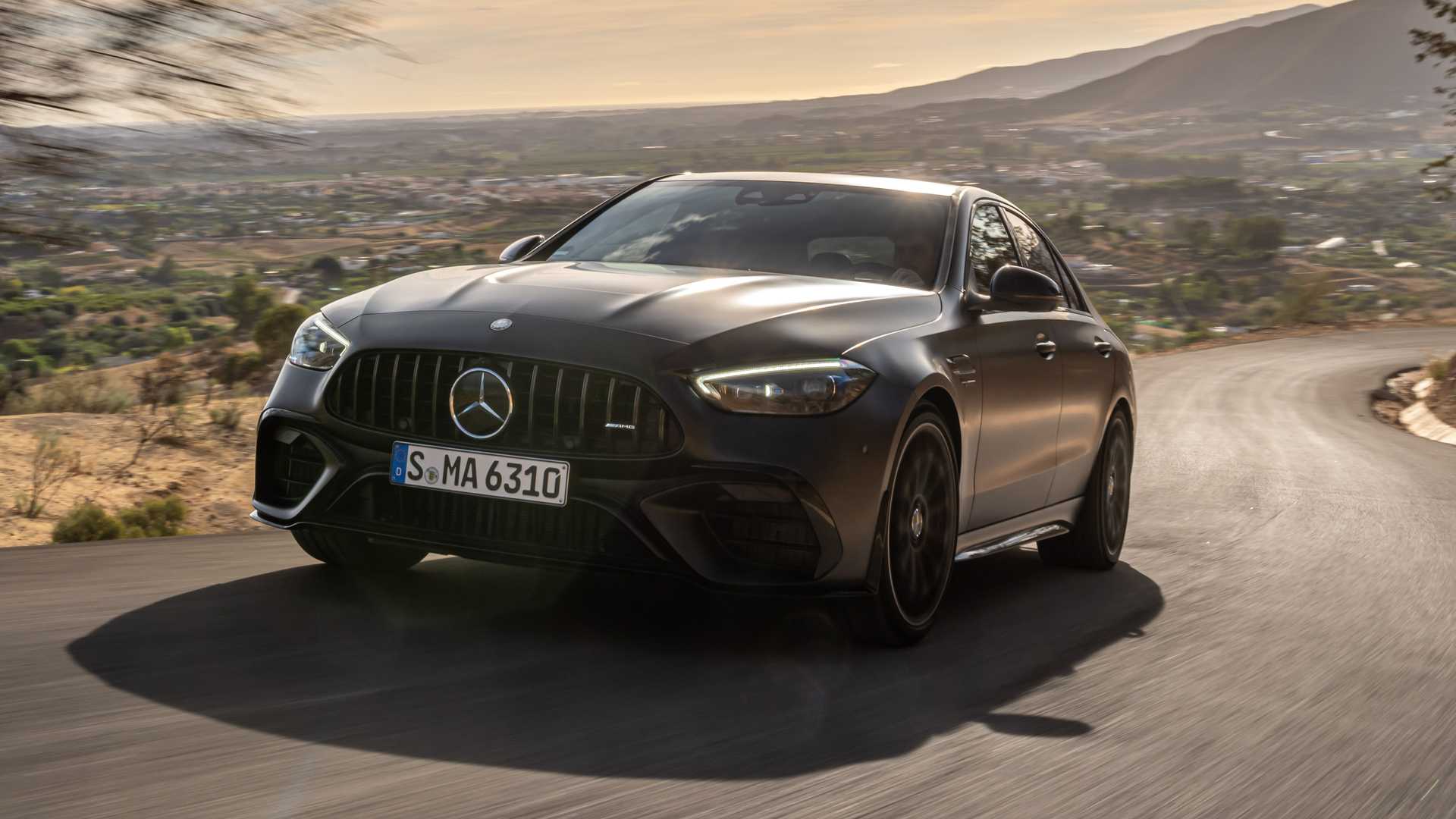In a recent turn of events, Car and Driver suggested Mercedes might reintroduce the V8 engine for its C63 and E63 models by 2026. Yet, when we approached Mercedes, the German luxury titan remained tight-lipped, declining to discuss upcoming offerings. In contrast, a fresh insight from Auto Motor und Sport challenges this, implying the eight-cylinder powerhouse might not make its comeback.
An “employee familiar with product development” labelled the initial news as “pure nonsense”, highlighting that the V8’s reintroduction to the C63 and E63 was off the table. As a result, it seems the elite C-Class will likely stick to its hybrid four-cylinder configuration. Moreover, the premium E-Class might also experience an engine reduction. The uncertainty remains: will the next E63 adopt an inline-six, or move to a four-cylinder? Nonetheless, Autocar believes the six-cylinder option is likely.
For those dreaming of the V8’s grand resurgence, especially within the European Union, the prospects appear bleak. Mounting emissions standards pose significant challenges for car manufacturers producing sizeable engines. The looming Euro 7 regulations, set for 2025, further cast shadows over the large ICE’s future.
Additionally, the burden of rising taxes has made high-performance cars less accessible. Had it not been for stringent policies, brands like AMG, BMW M, and Audi Sport might have sustained their renowned six- and eight-cylinder engines without pivoting to electric and smaller designs.

Many criticise car manufacturers for reducing engine sizes and integrating hybrid technology. Yet, it’s arguably the sole avenue to preserve the essence of performance vehicles. Admittedly, a four-cylinder AMG C63 isn’t universally appealing. Still, it’s arguably preferable to a non-existent AMG C63. Furthermore, BMW M has declared its intent to electrify future models, while Audi Sport’s pure petrol RS vehicles might soon be history.
Promoting petrol-only sports cars outside the EU seems impractical, given the immense European market share for brands like Mercedes and its competitors. Such a strategy would elevate production expenses and notably shrink the target market post-excluding European nations.






















